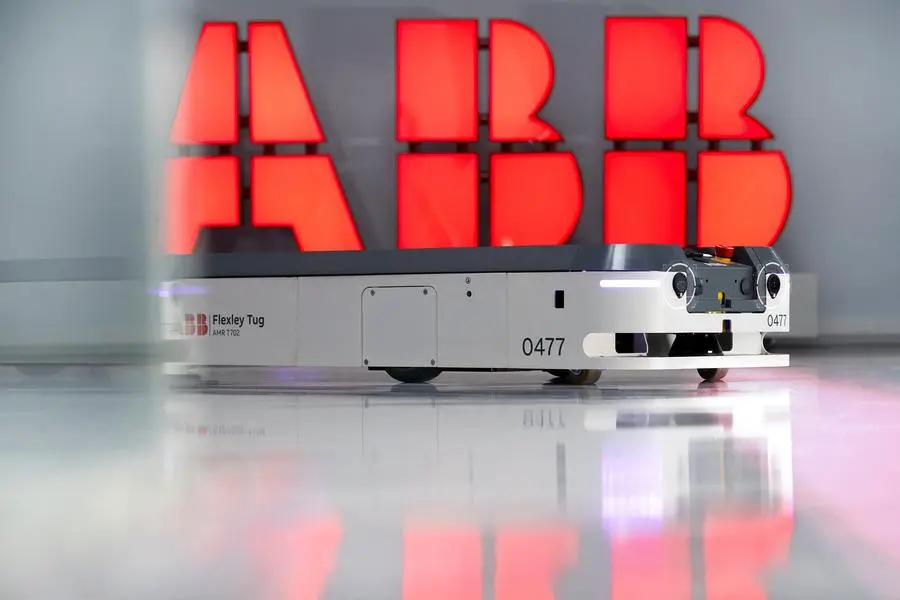PHOTO
ZURICH - ABB on Thursday posted a slightly better-than-expected profit in the second quarter, the engineering group's final set of numbers under departing Chief Executive Bjorn Rosengren, but shares stumbled as revenues fell short of expectations.
The Swiss maker of factory robots, ship motors and industrial drives said operational core profit (EBITA) for the April-June period rose by 10% to $1.56 billion, beating analyst forecasts for a figure of $1.54 billion.
"In the second quarter, demand was solid and the operational EBITA margin reached the all-time-high level of 19%," Rosengren said, even as he noted that there were one-off items that supported the company's performance.
"I am confident that ABB will continue to deliver long-term shareholder value in line with its targets as Morten Wierod takes over as CEO next month," he added.
Revenues rose by 1% to $8.239 billion, equivalent to growth of 4% in comparable terms, ABB said. But the consensus forecast provided by the company had been for a figure of $8.375 billion, and ABB's stock fell by as much as 7% in morning trade.
Orders fell 3% to $8.44 billion from $8.67 billion during the second quarter of last year. Rosengren said the firm had a "solid pipeline of orders going forward".
In the third quarter, ABB expects a "sequentially higher growth rate" in comparable revenues and the operational EBITA margin to be around 18.5%, or slightly below, Rosengren added.
The former Sandvik and Wartsila CEO has led a turnaround at ABB since taking charge in 2020.
The 65-year-old has overseen a decentralisation of operations, simplifying the company's structure and selling and spinning off businesses, including its power conversion unit.
On his watch, ABB's operating profit margin rose from 10.2% in the first quarter of 2020 to 19.0% in the second quarter of this year, and the share price has more than doubled.
Robust order growth was recorded for the electrification and process automation sectors, and business was particularly vibrant in data centres, ABB said. Transport and infrastructure, including marine, ports and rail, were also positive.
Machine automation had endured a "challenging time", Rosengren said, which helped sap orders in Europe.
The e-mobility business suffered $48 million of impairments primarily linked to inventories, and Rosengren told Swedish business daily Dagens Industri that the company has had to contend with ageing products that were difficult to sell.
"It's mainly the old generation of poles for charging electric vehicles," he said, saying new products with new technology would be sold in a few months time.
Meanwhile, the performance in Australia and parts of the Middle East helped offset a decline in China, though demand there was now improving, Rosengren said.
For the full-year 2024, ABB said it expects comparable revenue growth of about 5%, and an operational EBITA margin of about 18%, sticking to prior guidance.
(Writing by Dave Graham; additional reporting by John Revill, Marie Mannes, Linda Pasquini and Isabel Demetz; editing by Miranda Murray and Miral Fahmy)




















